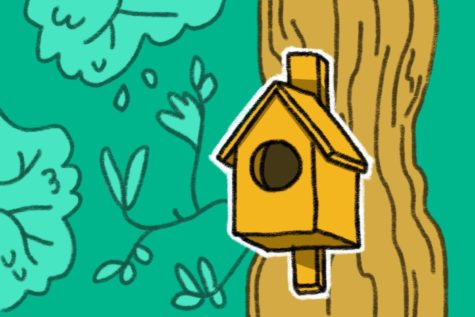OPINION | Off-campus living is integral but comes with community responsibilities

Moving into a cockroach-infested shotgun house in a centuries-old New Orleans neighborhood with seven other roommates is one of the most exciting events for third-year students at Tulane University. Tulane’s residency requirements stipulate that freshman and sophomore students live in residence halls across campus. After fulfilling these requirements, many students leap into the surrounding Uptown area, seeking independence among other perks.
The conditions of on-campus residences vary. Monroe, Sharp, Phelps and Irby Halls are known for their lively social scene and dingy living conditions. Other dorms are larger and newer, but may also be further away from the center of campus. In comparison to off-campus living, dorms are smaller, dimly lit, and living in such close proximity to peers can start to become claustrophobic. To most students, entering junior year implies not having to make direct eye contact with your roommate in the morning and not having to split one bathroom between eight people.
Neither on-campus nor off-campus living is particularly glamorous. Yet, Tulane students find value in both. Two years of on-campus integrates students into campus life, bringing them closer to their professors and peers. Furthermore, these two years prepare students for the excitement of finally moving into their own house.
Off-campus living seems like the light at the end of the tunnel for students who are eager to immerse themselves in the New Orleans community and have a space of their own. Unfortunately, Tulane University does little to prepare students for the transition to residential living, and for some New Orleans residents, Tulane’s housing requirements pose controversy.
Stop Doubles to Dorm campaigns have popped up throughout Uptown New Orleans over the last couple of years, blaming students for creating excessive noise and waste, while restricting parking and interfering with sewage and water lines. Further, increased demand for off-campus college living has allowed developers like Amicus Properties to make changes to residential houses to render them suitable for large groups.
Considering Tulane’s strained relationship with the greater New Orleans community, campaigning against students living in residential areas seems counterproductive to mending the relationship. On the other hand, though, Tulane students that invade neighborhoods and disrupt locals do not invite neighborhood camaraderie either.
Living even a few blocks away from Tulane’s main campus grants students the opportunity to become more involved with the New Orleans community. While Tulane’s surrounding neighborhood is known for its lack of cultural and racial diversity and for being home to residents not native to New Orleans, it is possible that Tulane-led initiatives to clean up Broadway Street and its surrounding streets and to reduce noise and waste could help relations between Tulane students and Uptown residents.
The interests of Tulane students and New Orleans residents are reconcilable, as members of both parties express a love for New Orleans, a desire to keep our communities clean and worry about rent control when landlords take advantage of those willing to pay high amounts to live in homes that are suitable to them.
Residents of Uptown, including Tulane’s students, should dedicate time and effort to fostering productive communication and collaboration so that we all can cultivate a neighborhood environment in which we all feel heard. This responsibility lies with the students, who live off-campus, the university, whose regulations dictate housing patterns, and with non-student residents, who bear the brunt of the problems caused by our housing trends.
We are all lucky to attend a nationally ranked school situated in a city known for its deep history, amazing food, unbeatable music and vibrant communities. It is for these same reasons that Tulane students should want to plant roots in New Orleans and live in its neighborhoods. We owe it to ourselves and to our neighbors to take care of the community that enables our incredible experiences at Tulane.
Your donation will support the student journalists of Tulane University. Your contribution will allow us to purchase equipment and cover our annual website hosting costs.


